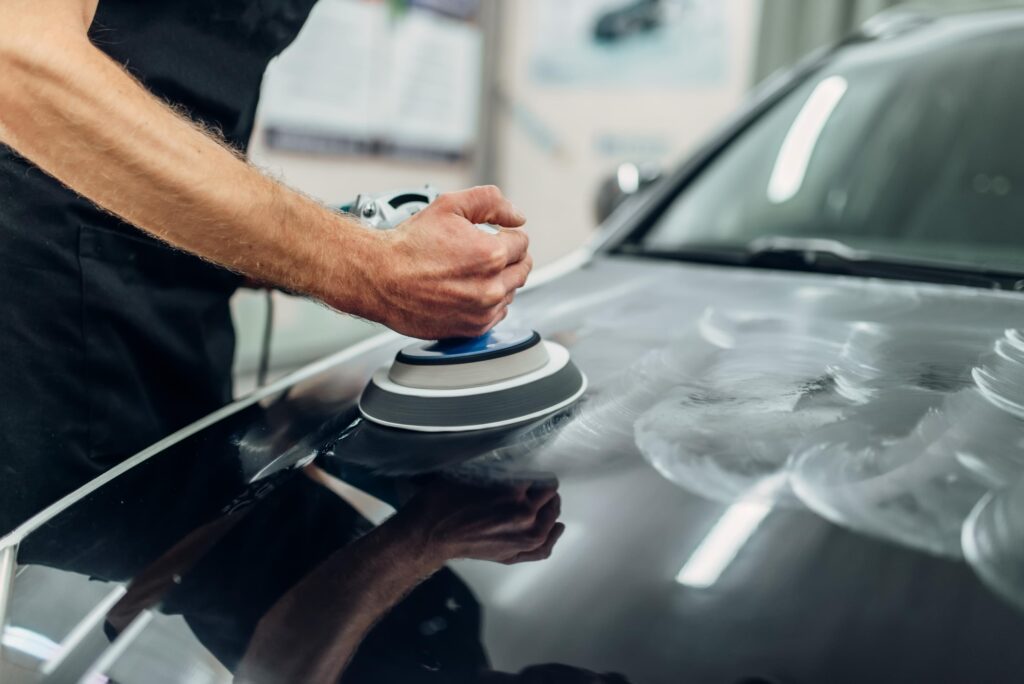Introduction
Have you ever looked at your car and wondered, “How often should I detail this beauty?” Keeping your car clean and shiny isn’t just about looking good—it’s about preserving its value and performance. Whether you’re driving a luxurious sedan or a rugged SUV, car detailing plays a critical role in maintaining its condition.
Understanding Car Detailing
What is Car Detailing?
Car detailing is a meticulous cleaning process that goes beyond a simple car wash. It involves cleaning, restoring and protecting the interior and exterior of your car, ensuring it looks as good as new.
Difference Between Car Washing and Detailing
While car washing focuses on removing surface dirt, detailing dives deeper. It cleans every nook and cranny, polishes surfaces and applies protective coatings to enhance durability and aesthetics.
Factors Influencing How Often You Should Detail Your Car
Driving Conditions
- Urban environments with heavy traffic and pollution can dirty your car quickly.
- Off-road adventures can lead to mud, scratches and other debris requiring frequent detailing.
Weather Conditions
- Sun exposure can fade paint while rain and snow can cause rust or corrosion.
- Dusty climates demand more frequent cleaning to maintain aesthetics.
Car Usage
- Daily commuters might require more frequent detailing than weekend drivers.
- Commercial vehicles like cabs need regular detailing to ensure cleanliness for passengers.
Car Type and Age
- Older cars with faded paint may need polishing and waxing more frequently.
- Newer cars with ceramic coatings can go longer between detailing sessions.
Owner’s Lifestyle and Preferences
- Some car owners value pristine aesthetics while others focus on basic functionality.
Types of Car Detailing and Frequency Recommendations
Exterior Detailing
- Frequency: Every 2-3 months.
- Tasks: Washing, waxing, polishing and applying paint protection to shield against environmental damage.
Interior Detailing
- Frequency: Every 3-6 months.
- Tasks: Vacuuming, shampooing upholstery and cleaning dashboards to maintain a fresh and hygienic interior.
Engine Detailing
- Frequency: Annually or as needed.
- Tasks: Removing grease and grime to ensure smooth performance.
Benefits of Regular Car Detailing
- Longevity: Protects your car’s paint and materials from wear and tear.
- Resale Value: A well-maintained car fetches a higher price in the used car market.
- Environmental Protection: Shields your car from UV rays, rust and other damages.
- Driving Experience: A clean car feels more comfortable and enjoyable.
How to Determine a Suitable Detailing Schedule
- Monthly Detailing: For cars frequently exposed to harsh conditions or heavy use.
- Quarterly Detailing: Ideal for regular users in moderate climates.
- Annual Detailing: Best for rarely used or well-protected vehicles.
Professional Detailing vs. DIY
When to Seek Professional Services
- Complex tasks like paint correction or ceramic coating are best left to experts like GlossZilla Car Detailing Studio.
DIY Detailing
- Cleaning interiors or basic waxing can be done at home with the right tools.
Signs That Your Car Needs Immediate Detailing
- Paint appears faded or scratched.
- Interior smells or looks dirty.
- Headlights or windows appear cloudy.
Cost of Detailing and Budgeting
- Professional Detailing Costs: Rs. 2,000 to Rs. 10,000 depending on services.
- Budget Tips: Opt for combo packages or seasonal discounts.
Common Mistakes to Avoid
- Over-cleaning can damage protective coatings.
- Using household cleaners may harm your car’s surfaces.
Conclusion
Regular detailing keeps your car in top-notch condition. By setting a consistent schedule based on usage and environment, you can enjoy a car that not only looks amazing but also performs well.
FAQs
-
How much time does a typical car detailing session take?
- Usually 3-4 hours, depending on the services included.
-
Is detailing necessary for new cars?
- Yes, it helps maintain the showroom shine and adds protective layers.
-
Can detailing fix minor scratches?
- Yes, processes like polishing and buffing can remove superficial scratches.
-
Does regular detailing affect the car’s paint?
- It preserves paint by removing harmful contaminants and adding protective layers.
-
What is the difference between waxing and polishing?
- Polishing restores shine while waxing adds a protective layer to the paint.


